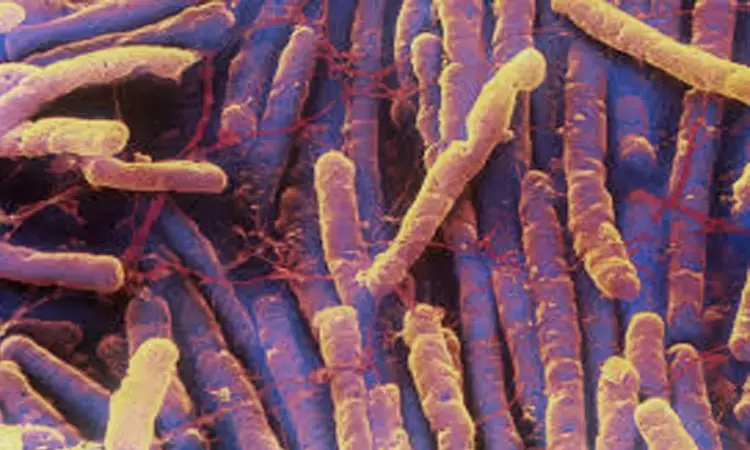- Home
- Medical news & Guidelines
- Anesthesiology
- Cardiology and CTVS
- Critical Care
- Dentistry
- Dermatology
- Diabetes and Endocrinology
- ENT
- Gastroenterology
- Medicine
- Nephrology
- Neurology
- Obstretics-Gynaecology
- Oncology
- Ophthalmology
- Orthopaedics
- Pediatrics-Neonatology
- Psychiatry
- Pulmonology
- Radiology
- Surgery
- Urology
- Laboratory Medicine
- Diet
- Nursing
- Paramedical
- Physiotherapy
- Health news
- Fact Check
- Bone Health Fact Check
- Brain Health Fact Check
- Cancer Related Fact Check
- Child Care Fact Check
- Dental and oral health fact check
- Diabetes and metabolic health fact check
- Diet and Nutrition Fact Check
- Eye and ENT Care Fact Check
- Fitness fact check
- Gut health fact check
- Heart health fact check
- Kidney health fact check
- Medical education fact check
- Men's health fact check
- Respiratory fact check
- Skin and hair care fact check
- Vaccine and Immunization fact check
- Women's health fact check
- AYUSH
- State News
- Andaman and Nicobar Islands
- Andhra Pradesh
- Arunachal Pradesh
- Assam
- Bihar
- Chandigarh
- Chattisgarh
- Dadra and Nagar Haveli
- Daman and Diu
- Delhi
- Goa
- Gujarat
- Haryana
- Himachal Pradesh
- Jammu & Kashmir
- Jharkhand
- Karnataka
- Kerala
- Ladakh
- Lakshadweep
- Madhya Pradesh
- Maharashtra
- Manipur
- Meghalaya
- Mizoram
- Nagaland
- Odisha
- Puducherry
- Punjab
- Rajasthan
- Sikkim
- Tamil Nadu
- Telangana
- Tripura
- Uttar Pradesh
- Uttrakhand
- West Bengal
- Medical Education
- Industry
Could a fecal transplant one day restore cognitive function in elderly?

Fecal transplants could one day be used as a therapy to restore cognitive function in the elderly -- according to new research from the University of East Anglia, the University of Florence and the Quadram Institute.
A new study published today shows how fecal transplants from older to younger mice altered their gut microbiome, which in turn impacted their spatial learning and memory.
The research team hope that reversing the procedure could one day see fecal transplantation used to combat cognitive decline among the elderly.
Dr David Vauzour, from UEA's Norwich Medical School, said: "Ageing is an inevitable process that starts immediately after birth and ultimately leads to physical health problems as well as a decline in psychological well-being and cognitive function.
"Research has shown that the aging process may be linked with age-related changes in our gut microbiota.
"Recently, the existence of two-way communication between the gut and the brain -- known as the 'gut-brain axis' -- has emerged as an important player in shaping aspects of behaviour and cognitive function.
"We wanted to see whether transferring gut microbes from older to younger mice could affect parts of the central nervous system associated with ageing."
The research team performed fecal transplants from older adult mice to younger adult mice and then assessed the young adults for markers such as anxiety, exploratory behaviour and memory.
After the transplantation, the team found significant differences in the young mice's microbial profiles.
While the young adults showed no significant changes in markers of anxiety, explorative behaviour or locomotor activity, they did show impaired spatial learning and memory as measured in a maze test.
These changes were paralleled by alterations in the expression of proteins associated with synaptic plasticity and neuro transmission, and changes to cells in the hippocampus part of their brains -- responsible for learning and memory.
Dr Vauzour said: "Our research shows that a fecal transplantation from an old donor to a young recipient causes an age-associated shift in the composition of gut microbiota.
"The procedure had an impact on the expression of proteins involved in key functions of the hippocampus -- an important part of the brain that has a vital role in a variety of functions including memory, learning but also in spatial navigation and emotional behaviour and mood.
"In short, the young mice began to behave like older mice, in terms of their cognitive function."
Prof Claudio Nicoletti, from the University of Florence, Italy, said: "While it remains to be seen whether transplantation from very young donors can restore cognitive function in aged recipients, the findings demonstrate that age-related shifts in the gut microbiome can alter components of the central nervous system.
"This work highlights the importance of the gut-brain axis in ageing and provides a strong rationale to devise therapies aiming to restore a young-like microbiota to improve cognitive functions and quality of life in the elderly," he added.
"Manipulating the microbiome is increasingly being seen as a way of improving or maintaining human health, and these results are an exciting indication of its potential for helping us age healthily" said Prof Arjan Narbad from the Quadram Institute.
"We have established an FMT service on the Norwich Research Park to treat serious gut infections and now want to explore in humans its effectiveness in combating a number of age-related conditions, including cognitive decline."
The research was led by a team at UEA and the University of Florence, in collaboration with colleagues at the University of Milan, the Earlham Institute, University of Siena, the Quadram Institute, and Nottingham Trent University.
https://microbiomejournal.biomedcentral.com/articles/10.1186/s40168-020-00914-w
Hina Zahid Joined Medical Dialogue in 2017 with a passion to work as a Reporter. She coordinates with various national and international journals and association and covers all the stories related to Medical guidelines, Medical Journals, rare medical surgeries as well as all the updates in the medical field. Email: editorial@medicaldialogues.in. Contact no. 011-43720751
Dr Kamal Kant Kohli-MBBS, DTCD- a chest specialist with more than 30 years of practice and a flair for writing clinical articles, Dr Kamal Kant Kohli joined Medical Dialogues as a Chief Editor of Medical News. Besides writing articles, as an editor, he proofreads and verifies all the medical content published on Medical Dialogues including those coming from journals, studies,medical conferences,guidelines etc. Email: drkohli@medicaldialogues.in. Contact no. 011-43720751


